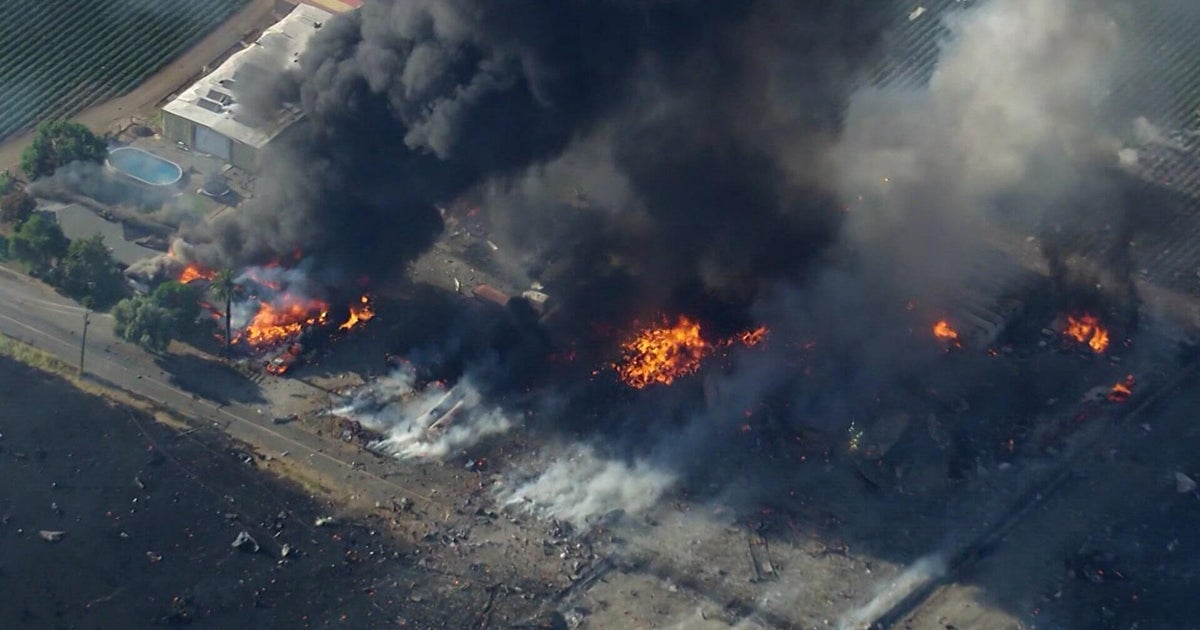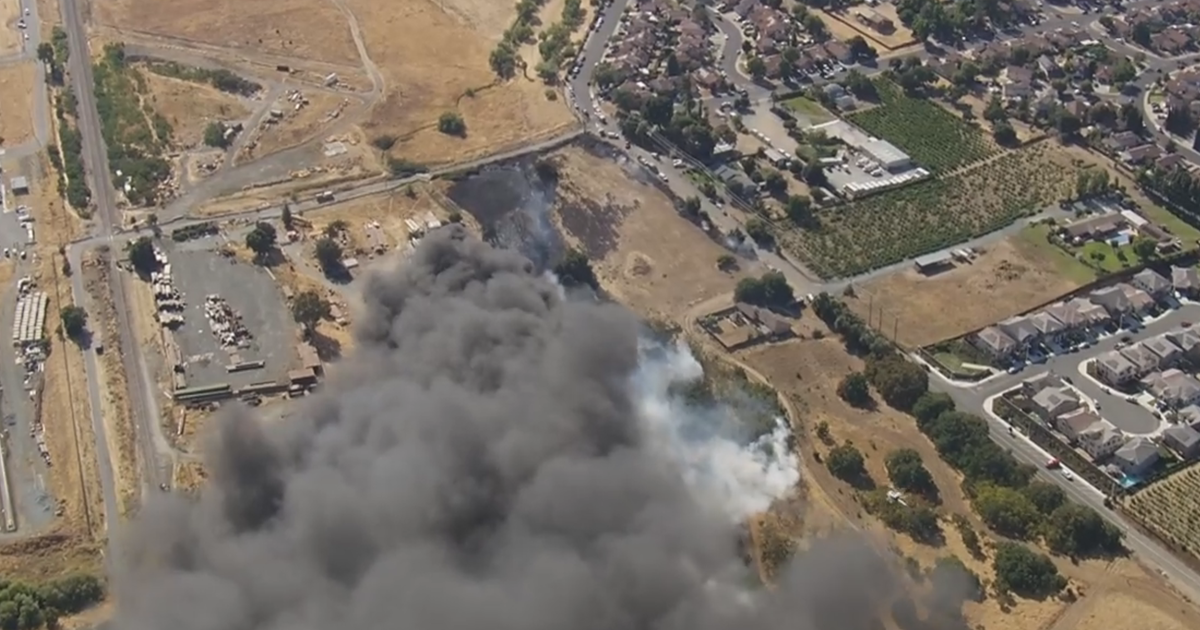Newsom Proposes Cuts For State Worker Pay, Schools, Health Care In Grim COVID-19 Budget Revision
SACRAMENTO (CBS SF) -- California Gov. Gavin Newsom painted a grim financial picture for the state Thursday as he presented a revised budget that reflected unprecedented unemployment, a massive decline in revenue and a proposed cut in pay for state workers.
COMPLETE COVERAGE: CORONAVIRUS PANDEMIC
The governor said the May budget revision reflected a 22.3 percent decline in revenue since January. The new revision draws on a $133.9 billion general fund and a $203.3 billion overall budget with a projected deficit of $54.3 billion.
Newsom confirmed that the revised budget included a proposed 10 percent pay cut to all state employees and less funding for the coming fiscal year for K-12 schools and community colleges than he envisioned in January.
"Negotiations will commence or continue with the state's collective bargaining units to achieve reduced pay of approximately 10 percent," a press release on the budget said. "The May Revision includes a provision to impose reductions if the state cannot reach an agreement. In addition, nearly all state operations will be reduced over the next two years, and nonessential contracts, purchases and travel have already been suspended."
MORE INFORMATION: Revised May Budget Summary For 2020-2021
Newsom noted that the proposed cut in state worker will also apply to him and his staff. The budget also calls for more telecommuting by state employees which will help pare down expenses.
"We will find efficiency," Newsom said. "You deserve a more nimble government that is leaner across the board."
The revised budget proposed Thursday marked an approximately five percent decrease from the current fiscal year's budget.
Newsom additionally was forced to eliminate a proposal to provide health care coverage to immigrants over 65 living in the county illegally, which would've cost an estimated $112 million. He similarly seeks to cancel other plans for expanding Medicaid.
MORE INFORMATION: Visit California's COVID-19 Website
Governor Newsom proposed spreading the use of California's Rainy Day Fund over the next three years, spending about half of it in the next fiscal year for an expenditure of $7.8 billion of the total $16.1 billion available in 2020-21. An additional $5.4 billion would be used in 2021-2022 with the remaining $2.9 billion being used the following fiscal year.
The May budget revision proposes $44.9 billion in General Fund support for schools and community colleges as well as $6 billion in additional federal funds to supplement state funding. To address the decline in the constitutionally-required funding for schools and community colleges resulting from the COVID-19 recession, the May revision proposes to reallocate $2.3 billion in funds previously dedicated to paying down schools' unfunded liability to CalSTRS and CalPERS to instead pay the school employers' retirement contributions.
The revised May budget also proposes a new obligation of 1.5 percent of state appropriation limit revenues starting in 2020-21 to avoid a permanent decline in school funding that grows to $4.6 billion in additional funding for schools and community colleges by 2023-24.
An additional $4.4 billion in "discretionary money" from the Cares Act will be put into public education. Newsom said it will be used to help with summer school and the flexibility districts will need during the coronavirus learning loss.
The revised budget managed to keep California's newly expanded Earned Income Tax Credit, which provides $1 billion that goes to working families who earn less than $30,000 annually. The revision also maintains grant levels for families and individuals supported by the CalWORKs and Supplemental Security Income/State Supplementary Payment programs.
Newsom insisted his proposed cuts could be prevented by a "stroke of a pen" by President Trump. He called on the federal government to do its by passing the proposed $3 trillion Health and Economic Recovery Omnibus Emergency Solutions Act, or HEROES Act. The House was scheduled to vote on the bill on Friday, but it is considered dead on arrival in the Republican-controlled Senate.
"The federal government, we need you. These cuts can be negated. They can be dismissed, with your support. This is your moment," said Newsom. "I want to thank again the incredible leadership of Nancy Pelosi, and I encourage my Republican friends, those on the other aisle and the Senate, to help support the states, help support the cities, help support the counties, help support America and Americans. The HEROES Act is the best approach."
More information on the May budget revision can be found at the state's official 2020-2021 budget website.
Newsom opened his remarks by noting the projected $6 billion surplus that the state was enjoying just in January, a surplus that was decimated by the impact of the coronavirus in the space of months.
Newsom said California is entering the current pandemic-induced recession in a much better economic condition that in previous recessions because of the fiscal stewardship of the previous administration of Gov. Jerry Brown.
"We are going to be dealing with challenges that we haven't faced in some time. But it is important to note when we talk in terms of the surplus we were debating last year," Newsom explained. "That operating surplus was in the range of $21.5 billion, that was last year's operating surplus that we were responsible for balancing. We debated that surplus and we did a lot of things that I hope make this situation a little bit better today."
The governor argued that the state was in a better financial position than it might have been, having significantly paid down the so-called "wall of debt" thanks to the budget surplus in addition to putting aside billions in the state's rainy day fund and having the state's bond rating increased twice last year to the highest level in two decades, significantly reducing California's borrowing costs.
"We are entering into this time of uncertainty in a much better place than we entered into it in 2003 or 2009," Newsom said, referring to the challenges faced by the state during the recessions that hit in those years.
"Despite the headwinds of a $54.3 billion shortfall that we are entrusted to balance in the current fiscal year and into the next budget year, to advance not only an effort to balance the budget, but also to balance our principles and to advance our values," Newsom said.
He went on to explain that the budget would aim to specifically protect four core California values: public education, public health, public safety and, finally, those hit hardest by the COVID-19 pandemic.
"As painful as the state's budget may be, the personal budgets for so many of you watching are even more devestating," said Newsom. "You've devastated your savings, your credit is completely destroyed, you are desperate to get a sense of not only your fate, but our collective future.
With 4.6 million Californians filing for unemployment just since March, the governor said the jobless rate during the pandemic crisis was expected to be far larger than it was during the recession of 2009.
Newsom said the May budget revision is projecting that the state unemployment will peak north of 24 percent, and the budget year would average 18 percent.
"This is simply without precedent. These numbers, these unemployment numbers, the economic consequences of COVID-19 are not only being felt statistically, but they haven't been felt like this since the Great Depression," explained Newsom. These are not normal numbers, even in a state so familiar with the vagarities of revenue, the increases and declines because the volatility of our tax system. These are simply without precedent in modern times."
A prominent union leader took to social media to warn of Newsom's proposed pay cuts prior to his Thursday news conference.
SEIU Local 1000 President Yvonne Walker said in a Facebook video that Newsom's office informed her of the proposed cut on Wednesday. A state official with knowledge of the budget confirmed the proposal to the Associated Press, adding it will be part of the collective bargaining process.
The state official spoke on condition of anonymity because they were not authorized to release the information ahead of Newsom's formal announcement.
If the Newsom administration fails to achieve the necessary savings through negotiation, the governor could order furloughs instead.



